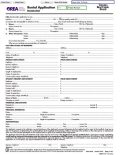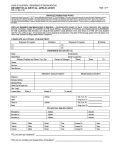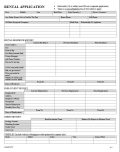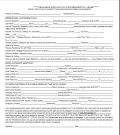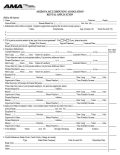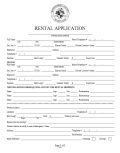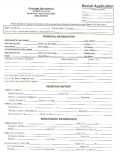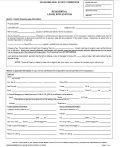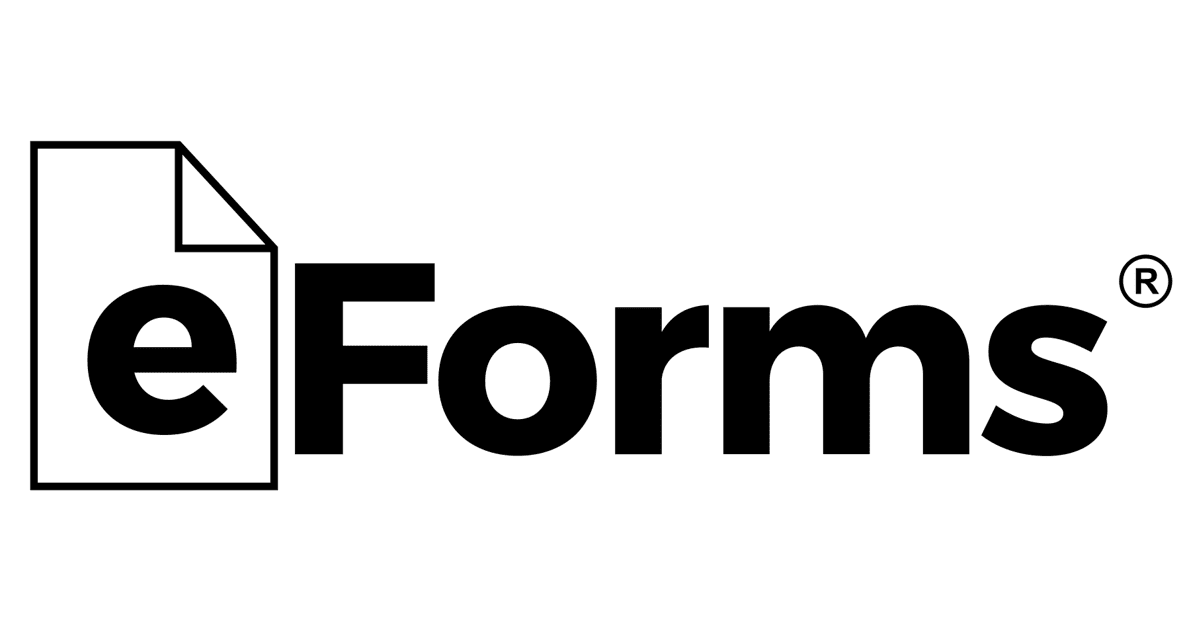Why do you need a rental application form?
Rental applications help the landlord navigate through the list of potential tenants and get the best. A rental application should contain identifying information such as:
- Name of the tenant
- Phone number
- Email address
- Social security number
- Driver’s license number
The landlord also gets to know the number of other residents of the proposed unit and their relationship to the tenant.
The purpose of rental applications is also to get insights on other aspects that are important such as tenants’ credit /financial stability, employment history, criminal history, and their rental history.
Credit History/ Financial Stability
A background check on the credit history requires consent from the tenants. The tenant is required to provide some information to help check their credit history. This include:
- Social security number
- Bank account details/current balances
- Credit card statements
- Letters from previous landlords confirming their payment behaviors
Employment history
Employment history enables the landlord to ensure the tenants are reliable and can pay the rent. The following information can be provided by the tenant on their employment history:
- The current and last two employers
- Contact information of the current and previous two employers
- Company name and contact details
- Job title and nature of work
- Employment period
- Monthly pay
Criminal history
Rental application with a criminal history or sex offender status is done in a bid to protect other residents. However, the tenant cannot be discriminated against due to this. There is a database that enlists such offenders that is public.
Rental history
Information on prior rental experiences allows the landlord to determine what kind of a tenant they are looking at. Applicants should fill in the following:
- Address of the current and previous residences
- Dates of residency
- Name and contact information of the landlord or manager
- Reasons for moving out
- The rent price and payment terms
Rental Application charges and fees
Application charges and fees are meant to cover the cost of doing a background and credit check. The application fees and charges vary from state to state. There are some states (most states) that do not have a limit on the maximum fees asked. However, the amount charged should be the same for all the tenants.
States that have rental application charges and fees limit
| State |
Maximum Application fee |
Laws |
| California |
$52.46 |
Cal. Civ. Code § 1950.6 |
| Delaware |
$50 or 10% of monthly rent |
Del. Code tit. 25 § 5514(d) |
| New York |
$20 or cost of background check, or whichever is less |
N.Y Real Prop. Law § 238-A.1(b) |
| Oregon |
A fee not greater than the average screening fee |
Or. Rev. Stat. § 90.295 |
| Virginia |
$50 excluding extra expenses for doing a background check |
Va. Code § 55.1-1203(C) |
| Washington |
The cost of only obtaining the screening reports |
Wash. Rev. Code § 59.18.257(1)(b) |
| Wisconsin |
$20 for credit check |
Wis. Admin. Code ATCP § 134.05 |
Specific requirements based on states
California – The landlord can ask about the applicant’s source of income and their income level. However, these are not grounds for discrimination against the tenant.
Delaware- The landlord can keep an application file for six months. It applies to even cases where the application was rejected. The landlord must give the applicant a receipt and keep the records for two years.
Massachusetts- Only the brokers and agents are allowed to charge the application fee, not the landlords.
Maryland- The landlord must return the amount (over $25) that is not directly used on screening within 15 days after the tenant move-in. They can also do the same if the application was denied.
Minnesota- The landlord is not allowed to collect the application fee when rental units are unavailable. They must also provide receipts for the application fees and charges.
New York- The landlord must return the application fee if the tenant provides credit and criminal background check report. It must be done within a 30-day period.
Texas- the landlord is allowed to reject an application if inaccurate information is disclosed by the tenant.
Washington- The landlord is required by federal law to provide disclosures such as rent, application fees, and deposits, housing codes violations, mold status, copy of ‘D.C tenants bill of rights’ and pending co-op/condo conversion status. This is done after the application is accepted.
Virginia – the landlord must return the amount that was not used during screening within 10-20 days after the application was denied.
What Rental Application should contain
Property information- The name of the landlord or the manager and their contact information
Occupant’s information- the name and details of the occupants. The number of occupants is also indicated to ensure they follow the federal occupancy guidelines.
Rental history- Information of the current and previous history to ensure no issues with tenancy.
Employment history- current and previous employer’s details and position held. This determines whether the prospect is a good financial risk.
Bankruptcy- fill on bankruptcy status.
Emergency contacts- the primary and secondary emergency contacts.
Vehicle information- ensure only authorized vehicles are allowed in the units.
Pet information- for pet appropriate deposits or enforcing the no pet’s policy.
Prior eviction details- to ensure no issues will arise
Prior convictions details- to protect the other tenants.
Permission to run credit and background checks- to ensure the landlords have consent while running the checks.
References- to confirm the information given especially on employment and rental history.
Signature and date- a signature is needed so that the landlord can go ahead and screen the applicant.
